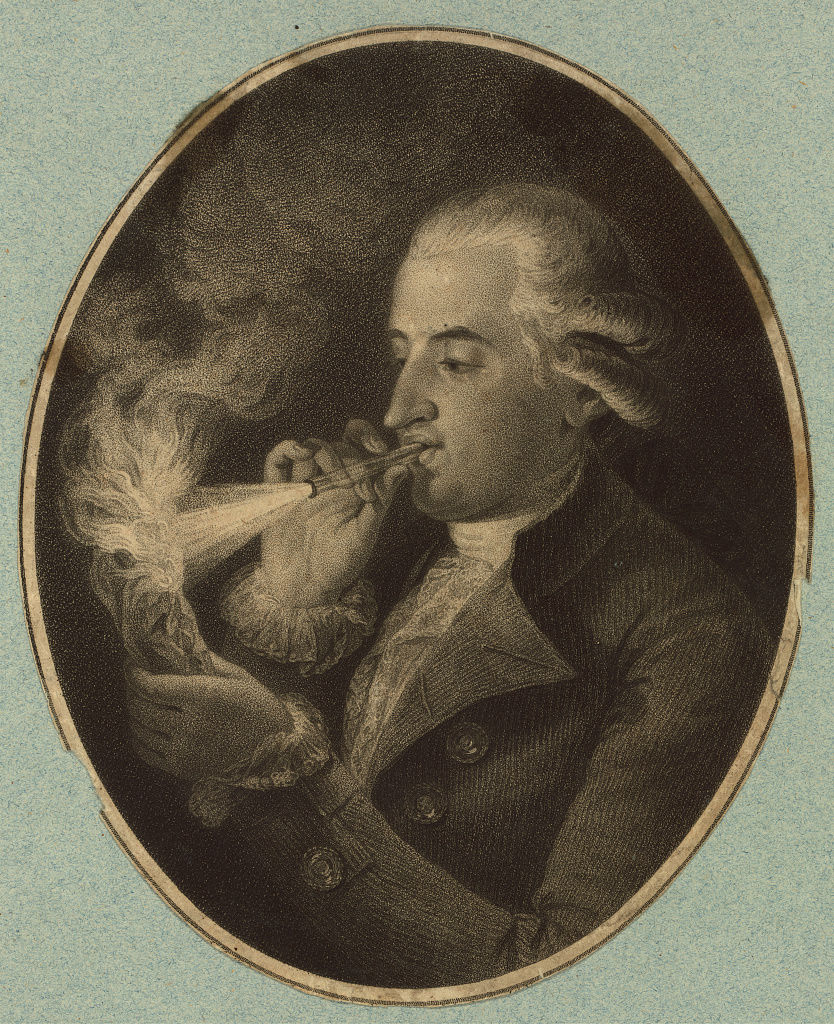
Jean-François Pilâtre de Rozier, French balloonist, blowing hydrogen gas into a flame. This is not Photoshopped, he actually did this. Unsurprisingly, this combo killed him.
The Wright Brothers were not the first to fly. Rather, the Wrights were the first in a very specific category of flying; using a craft that was: 1) heavier than air, 2) self powered, 3) capable of sustained flight, and 4) controllable.
But there are other ways to fly.
Human flight was actually accomplished more than 100 years before the Wrights, when a hot air balloon with two people went aloft on November 21, 1783 in Paris.
Originally, France’s Louis the XVI decreed that the first person to fly would be selected from prisoners facing execution by guillotine. Louis saw flying as a form of extreme punishment, which of course, it still is today.
In order to attract potential aeronauts, Louis added an incentive: if the prisoner survived the flight, he would receive a full pardon. But before the 'flying felon' plan could be implemented, a scientist named Jean-François Pilâtre de Rozier, insisted he receive the honor first to fly, despite the danger.
The historic flight of de Rozier and his companion François Laurent d'Arlandes was trouble-free. But then he scaled up faster than was advisable. Within months, de Rozier was flying to an altitude of 10,000 feet. In 1784, he set out to cross the English channel in a balloon that used both hot air and hydrogen. No one was overly concerned that the flame from the hot air burner might ignite the the highly-explosive hydrogen. Not long after takeoff, the the balloon burst into flames. Luckily, parachutes had been invented a year earlier. Unluckily, de Rozier did not have one. He fell thousands of feet to his death.
Nine years later, Louis XIV was sentenced to the guillotine. But there is no evidence he was given the option of escaping execution by taking a balloon flight.